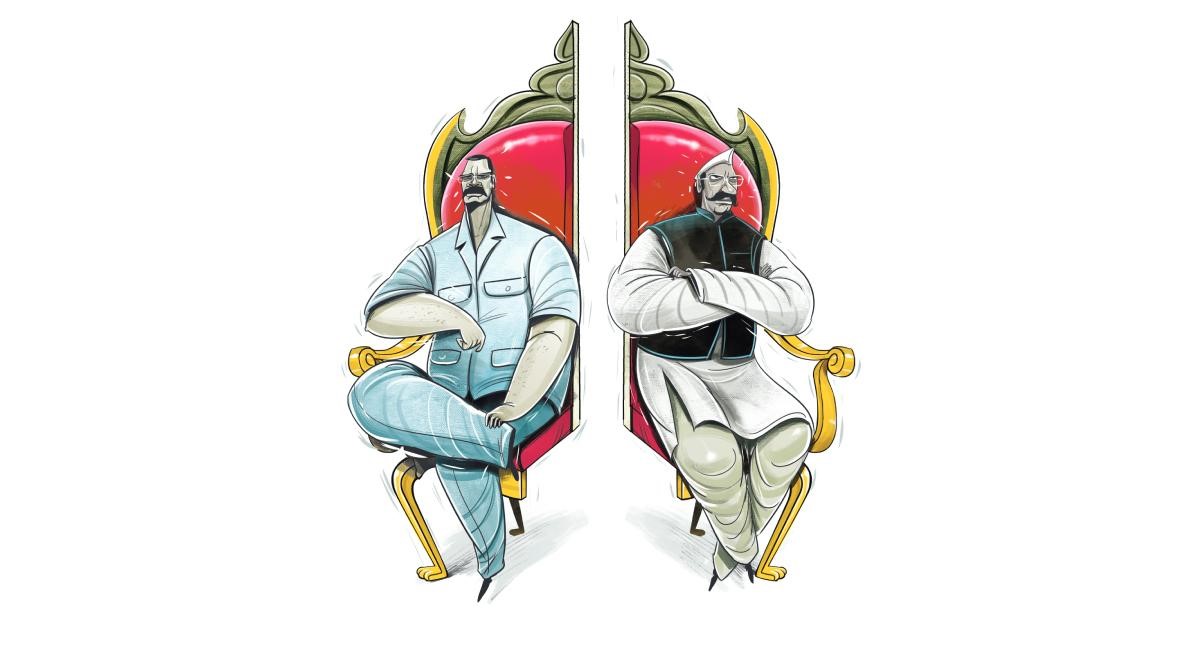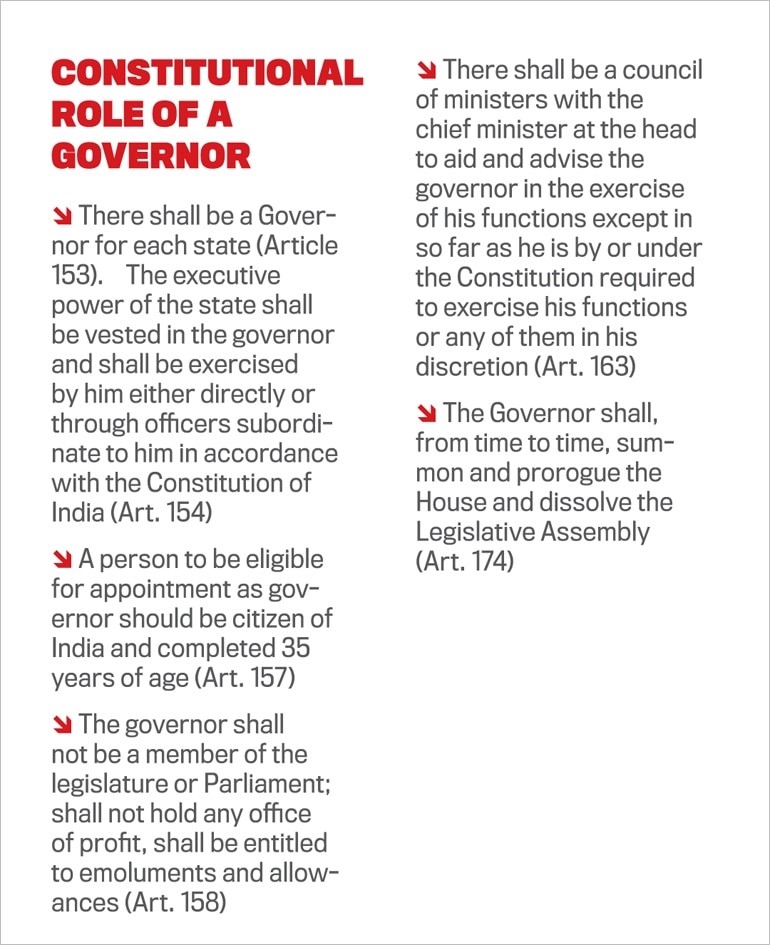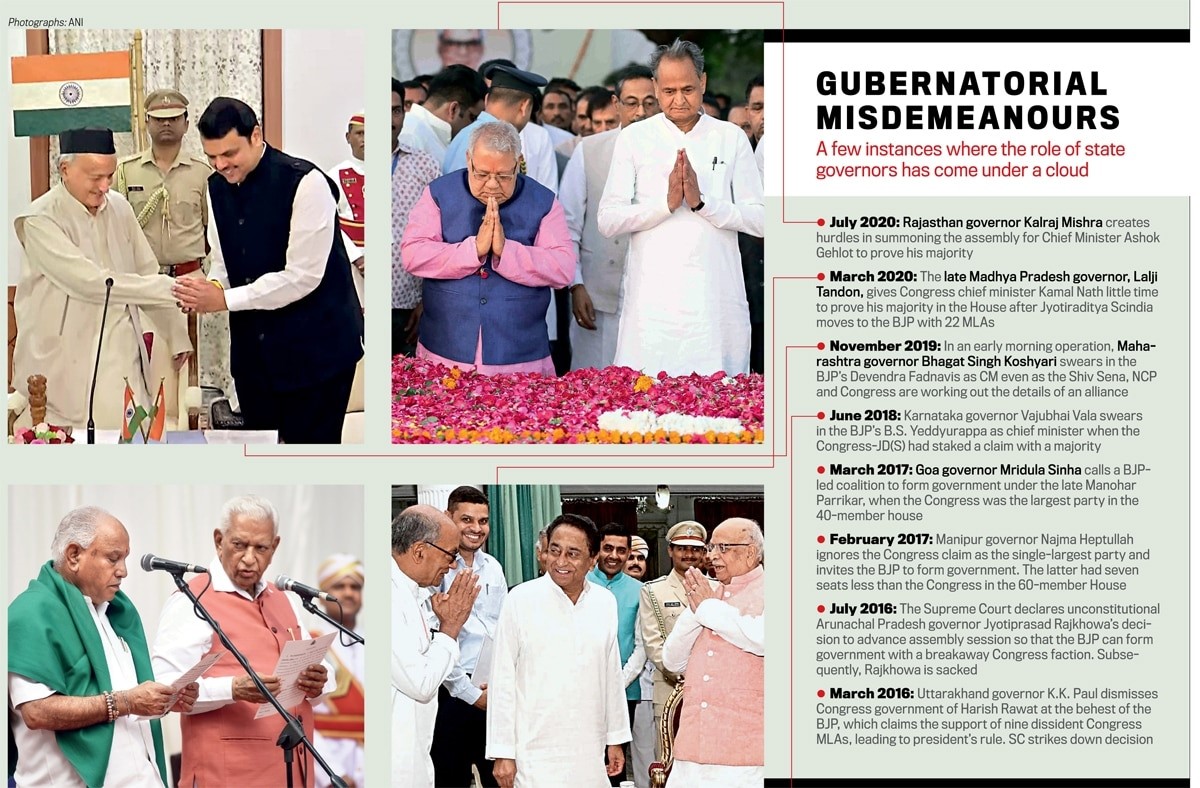Description

Disclaimer: Copyright infringement not intended.
BASED ON RECENT ISSUE
Context
- The Kerala government recently approached the Supreme Court, expressing concerns over President Droupadi Murmu withholding assent to four Bills passed by the state and Governor Arif Mohammed Khan withholding assent to seven Bills, some for up to two years, before referring them to the President. The state government, led by the Left Democratic Front, urged the court to declare the referring of state Bills to the President as unconstitutional and lacking in good faith.
Conflict between States and Governors
- This incident marks the latest episode in the ongoing conflict between states governed by opposition parties and their appointed Governors, who act on the advice of the Centre. The situation underscores the need for clarity and guidelines regarding the Governor's role in state governance.
Understanding Governor-State Relations
Legal Framework
- The Governor, envisioned as an apolitical head, possesses certain powers under the Constitution, including giving or withholding assent to Bills passed by the state legislature.
- However, there are no explicit provisions outlining the manner in which the Governor and the state must engage publicly during differences of opinion.
Recent Friction Points
Selection of Government
- Instances of Governors influencing government formation have occurred, leading to controversies and political instability.
- Examples include the dissolution of the J&K Assembly by Governor Satyapal Malik and the subsequent bifurcation of the state.
Handling of Bills and Remarks
- Governors have faced criticism for delaying assent to Bills and making negative remarks on state administration, as observed in Kerala and Maharashtra.
Historical Context
- Allegations of Governors destabilizing state governments date back to the 1950s, with instances of state government dismissals and imposition of President's Rule orders.
- The increasing politicization of the Governor's position has led to concerns regarding their impartiality and adherence to constitutional principles.
Proposed Reforms
- Various commissions have recommended reforms, including changes in the Governor's selection process, fixed tenure, and provisions for impeachment.
- However, these recommendations have not been implemented by successive governments, highlighting the need for reform in Governor-state relations.
Conclusion
- The conflict between states and Governors underscores the importance of defining the Governor's role within the constitutional framework. Addressing these issues requires comprehensive reforms aimed at ensuring the Governor's impartiality and accountability in state governance.

TUSSLE BETWEEN GOVERNORS AND STATE GOVERNMENTS
Historical Context
- The conflict between governors and state governments has persisted since independence, reflecting the complex relationship between the Centre and states.
- Governors serve as a crucial link between the Centre and states, with their appointment and tenure controlled by the Centre.
Quasi-Federal Structure of Government
- India's governance follows a Quasi-Federal structure, where powers are divided between the central government and state governments.
- Powers are delineated into Union, State, and Concurrent Lists, with the central government holding authority over certain subjects.
Increasing Centralization
- The federal structure faces challenges due to the growing involvement of governors, especially in states with opposing ruling parties.
- Commissions like Sarkaria Commission, the National Commission to Review the Working of the Constitution, and the Punchhi Commission have proposed reforms to address these issues.
Appointment and Role of Governors
Appointment Process
- Article 153 of the Constitution outlines the appointment of governors by the Centre.
- Initially, suggestions were made for non-political appointments, emphasizing individuals with expertise in various fields.

Criticisms and Challenges
- Governors have faced criticism for perceived political bias, overstepping of powers, and interference in state administration.
- Instances of prolonged withholding of assent to bills and controversial appointments have heightened tensions between governors and state governments.

Recommendations for Reform
Punchhi Commission Recommendations
- The Punchhi Commission recommended redefining the Governor's role as a representative of the President to enhance impartiality.
- It suggested empowering governors to address constitutional crises and dismissed governments, ensuring timely and effective governance.
Judicial Intervention and Supreme Court Cases
- Supreme Court judgements, such as Shamsher Singh vs State of Punjab and S. R. Bommai v. Union of India, have delineated the limits of gubernatorial powers.
- The Court established that the Governor's actions are subject to judicial review and must align with constitutional principles.
Conclusion and Reform Agenda
- The role of governors is vital in maintaining state-centre relations, but their politicization undermines their neutrality.
- Reforms should focus on depoliticizing appointments, defining discretionary powers, and ensuring consultation with state governments.
- Constitutional amendments are necessary to institutionalize these reforms and uphold the integrity of India's federal structure.
|
M.M. Punchhi Commission : Report and Recommendations
Appointment and Removal of Governors
Appointment and removal criterion recommendations:
- The incumbent should stay away from active politics (even at a local level) for at least two years prior to his appointment.
- There should be a say of the State’s Chief Minister while making the Governor’s appointment.
- A committee should be formed that is entrusted with the task of appointment of governors. This committee may comprise the Prime Minister, the Home Minister, the Lok Sabha’s speaker and the concerned Chief Minister of the State.
- Deletion of the Doctrine of Pleasure from the Constitution.
- The term of appointment should be five years.
- Governor could only be removed via a resolution by the State Legislature.
- Recommendation of provision for the Governor’s impeachment by State Legislature.
- Right of Governor to sanction the prosecution of ministers against the advice of the State Government.
It was also recommended by the Commission that the convention of appointing governors as chancellors of universities must also come to an end.
Judicial Precedents on Governor's Powers
B. P. Singhal v. Union of India (2010)
- The Supreme Court ruled that the Governor is generally bound to act on the advice of the Council of Ministers.
- Exceptions exist for situations like constitutional crises, where the Governor may exercise discretion.
Rameshwar Prasad v. Union of India (2006)
- The Supreme Court affirmed that the President's authority to dissolve a state assembly and call for fresh elections is subject to judicial review.
- This decision emphasizes the accountability of the President's actions in such critical matters.
R. K. Garg v. Union of India (1981)
- The Supreme Court clarified that the Governor's power to reserve a bill for the President's assent is not absolute.
- The decision underscores the possibility of challenging gubernatorial actions in court, ensuring checks and balances in the legislative process.
|
|
PRACTICE QUESTION
Q. Examine the conflicts between Governors and State Governments in India. Evaluate the impact of these disputes on the federal governance structure. Propose reforms to address these tensions and enhance cooperative federalism. Support your answer with examples and constitutional insights.
|













